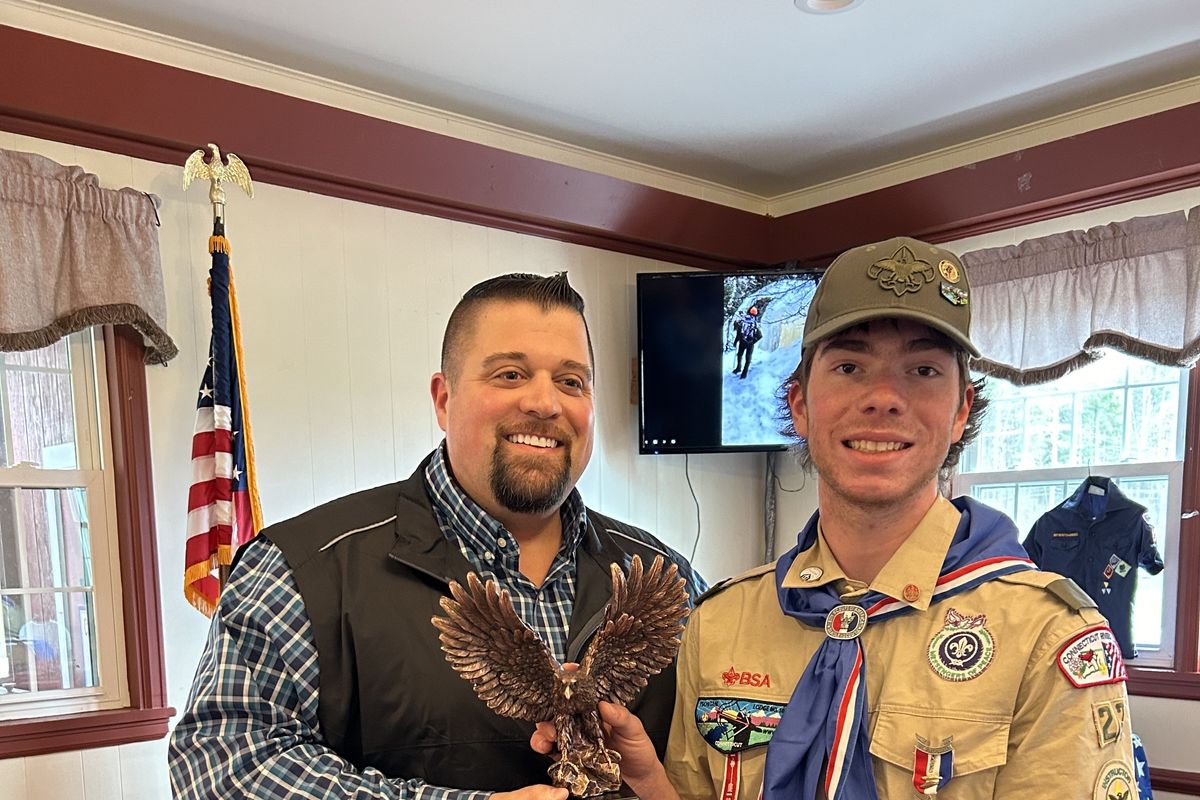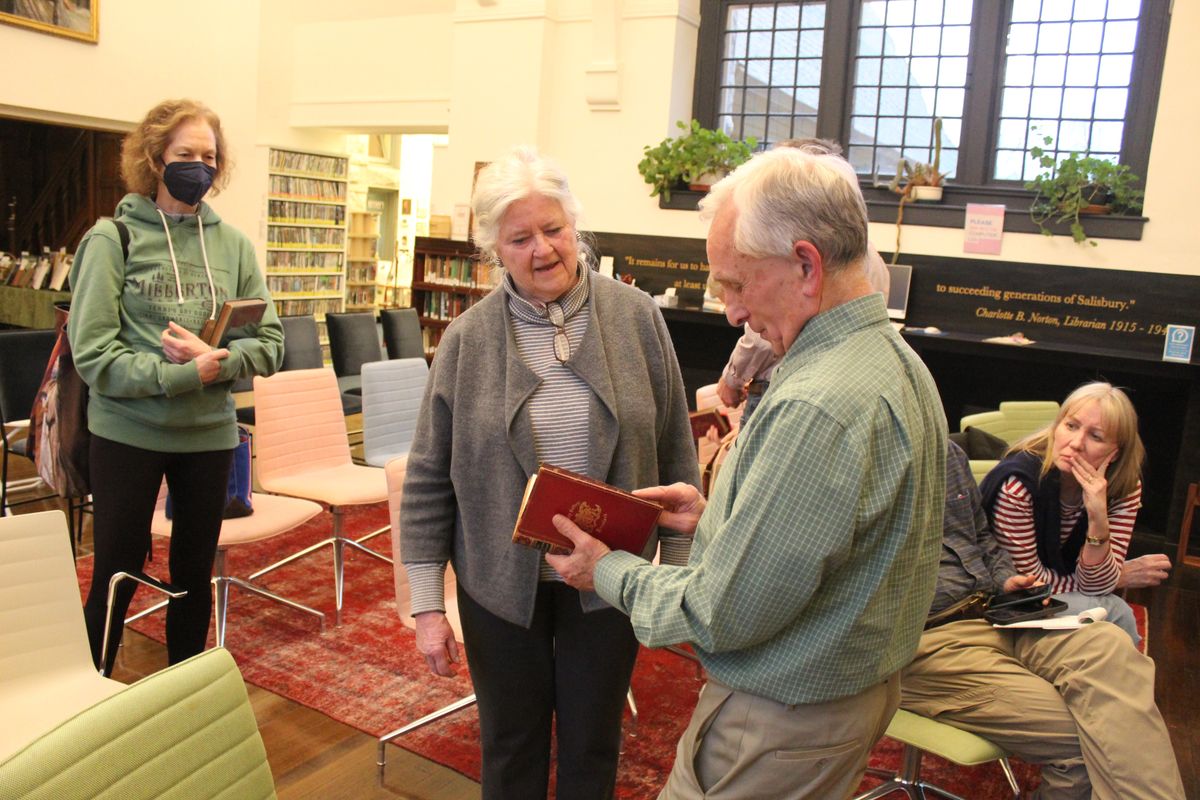Latest News
Region One announces new Super
Apr 24, 2024
Melony M. Brady-Shanley
Provided
FALLS VILLAGE — Melony M. Brady-Shanley is the new Superintendent for Region One. She will take over from Superintendent Lisa Carter on July 1.
The announcement was made April 17.
The six town school boards and the Region One Board of Education met last week to confirm the appointment. The search committee interviewed eight candidates for the position.
Brady-Shanley is the current superintendent of Winchester Public Schools, and guided Winchester out of state receivership.
Prior to Winchester, she served briefly as Assistant Chief Talent Officer in New Britain. Between 2001 and 2016, Mrs. Brady-Shanley taught, coached, and served as principal at the elementary and secondary levels in the Hartford Public Schools. She also served as an academic specialist in the University of Connecticut’s Educational Leadership program.
Brady-Shanley graduated from Slippery Rock University with a Bachelor of Science in Education, and earned degrees in Educational Leadership and a Superintendent Certificate from Central Connecticut State University. She lives in West Hartford.
Keep ReadingShow less
Troop 22’s newest Eagle Scout
Apr 24, 2024
Provided
On Saturday, April 20, Liam MacNeil earned the rank of Eagle Scout at VFW Couch Pipa Post 6851. North Canaan First Selectman Brian Ohler attended the ceremony to present the honor to MacNeil and acknowledge his dedication to the community.
Ken Gloss took a look at books for Mary Sullivan and Jody Potter (left) after his talk at the Scoville Memorial Library on April 17.
Patrick L. Sullivan
SALISBURY — Ken Gloss, proprietor of the Brattle Book Shop in Boston and a fixture on public television’s “Antiques Roadshow” entertained a bevy of bibliophiles at the Scoville Memorial Library Wednesday, April 17 with stories from the book trade.
He also gave quick assessments of books to about a dozen people after his remarks.
The Brattle Book Shop has had a somewhat peripatetic existence since its founding in 1825, with seven different locations. It has been run by the Gloss family since 1949, when Ken Gloss’ father George took over.
Gloss said the Brattle moved to a location on West Street in Boston which burned in 1980. Undaunted, Gloss moved the shop to its present location a few doors away, and Bostonians (including Mayor Kevin White) donated books to restock.
Gloss said he and his staffers go out on buying trips almost daily.
Some destinations are opulent Some are humble. And there’s no telling what awaits.
One call was to an elderly woman in a small house with peeling paint. Gloss took a look at the books, which were nothing special.
Then he noticed the watercolors. “Oh, those are nice.”
“Oh yes” said the elderly lady. “They’re all [J.M.W.] Turners.”
Gloss said he or his staff get hundreds of calls about books.
“Most are routine, I can give them an answer off the top of my head.”
But every so often there’s a call like the one from the woman who announced, “President Kennedy slept with me!”
Turned out the woman worked for the Kennedy family as a nurse. The infant JFK did indeed sleep with her in her professional capacity.
“She had handwritten letters from the President,” Gloss said, explaining that for collectors handwritten letters are particularly prized.
“As far as I know they still have them. They can’t sell them. They’re part of their life.”
George Gloss died in 1985, and Ken Gloss took over, and in the process hired a young man who seemed promising.
A customer entered, browsed around and asked for an item they did not have in stock but could likely obtain.
The customer said he would come back and left.
The new assistant remarked, casually, “That was J.D. Salinger.”
Startled, Gloss asked how he knew.
“I used to date his daughter.”
Gloss said he enjoys doing the television program and traveling to parts of the country he might not otherwise get to.
He revealed some insider information, such as this tidbit:
“We don’t get paid. At all. And there’s no guarantee we’ll get on TV.”
An ideal day on the Antiques Roadshow trail has him rising early, spotting someone with a promising item, alerting the producer, and filming the encounter.
“So by 9 a.m. we’re finished. It makes the day go easy.”
On the other hand, “if by 4 p.m. we haven’t taped, we’re probably not going to.
The element of surprise remains constant from book shop to TV, however.
One man came into the TV taping and explained he had worked as an airplane pilot for Pope John Paul II. He had a photo of the Pope signing his Bible to prove it.
This was moderately interesting.
Then the man added, offhandedly, “Oh, I’ve got the Bible, too.”
After his remarks, Gloss examined books and other items from about a dozen people, most of whom came away happy.
Keep ReadingShow less
Housing group seeks approval of land transfer
Apr 24, 2024
KENT — The plan to develop about 10 units of affordable housing on town land inched forward this week following a lightly attended April 12 public hearing concerning the transfer of 1.16 acres of land from the town to Kent Affordable Housing (KAH).
The hearing gave residents a chance to comment on a conditional approval for the transfer, which would be done at no cost to KAH. The proposal still faces a town meeting vote.
The conditional approval would stipulate that KAH obtain all necessary approvals and that it, or some other agency dedicated to affordable housing, operate the new development. If KAH cannot get the necessary approvals, the land reverts to the town.
First Selectman Marty Lindenmayer gave an overview of the steps taken by the town since the 2022-2027 Housing Plan identified the parcel as an appropriate area for expansion of affordable housing. An assessment by Cardinal Engineering determined the parcel has sufficient water and sewer capacity to support the housing.
The proposal quickly progressed through several levels of review, including a needs assessment, negotiations with Park and Recreation about that agency’s needs, a survey, discussions with the Selectmen, and getting a positive 8-24 review from the Planning and Zoning Commission.
“On Dec. 14, Planning and Zoning reviewed the proposal and determined it met all the requirements of the Plan of Conservation and Development. They sent it back to the Board of Selectmen,” Lindenmayer told the audience at Town Hall, emphasizing “how many times we have discussed this.”
KAH President Justin Potter told his audience that KAH currently owns and manages 37 units of affordable housing—24 at South Commons, adjacent to the proposed site. He said a minimum of 10 units would be developed on the new land, but that there is no intention to “push the envelope” and create greater density than at South Common.
Potter noted the configuration of other facilities in the region, including the tennis courts’ parking lot and Swift Lane. He said these areas would not be affected by construction traffic, with access being through the transfer station or the Public Works site.
He said there is a “tremendous need” for affordable units in the town. KAH currently has 64 households on its wait list, and, on average, it is 37 months before a unit opens up. In response to a question from Selectman Lynn Mellis Worthington about using the additional housing to attract younger families, Potter said it is a matter of getting them to put their names on the wait list for that long.
“South Common was built for young families, but getting them to apply is key,” he said. “We need to let them see a path to a future.”
Another person asked whether, if the town donates the land, it would give priority to Kent residents seeking housing. When governmental funding is used to develop such properties, rentals must be opened to residents of other towns.
There is a different tranche of funding for workforce housing, however, that could be restricted to people working in town. For instance, the Kent Volunteer Fire Department has met with Kent Affordable Housing’s architect to discuss creating affordable housing on its campus.
The properties KAH is considering for this project—the KVFD Ambulance Barn and office space in the back of the firehouse—could be converted for rentals for department members if the state agrees. This could allow KVFD to have a member or two dedicated to responding to alarms through the inducement of lower rents.
Potter was asked about handicap accessibility on the Kent Common site, and he responded that this would be taken into consideration. “We have too many stairs,” he conceded, referring to previous developments.
Assuming the conditional approval is passed at the April 26 town meeting, KAH will bring in an architect to create conceptual plans that would be brought to the town for discussion.
Keep ReadingShow less
loading















